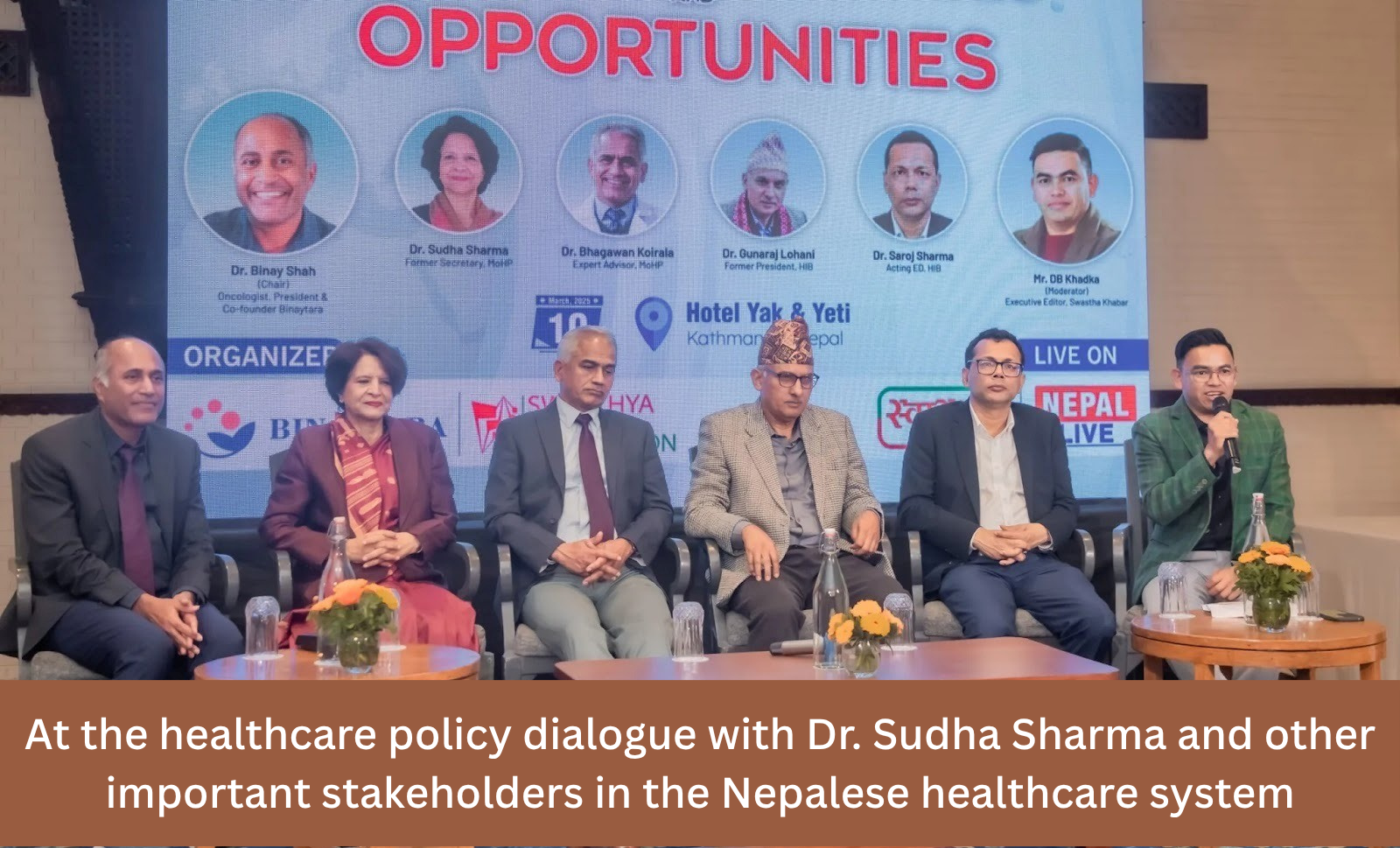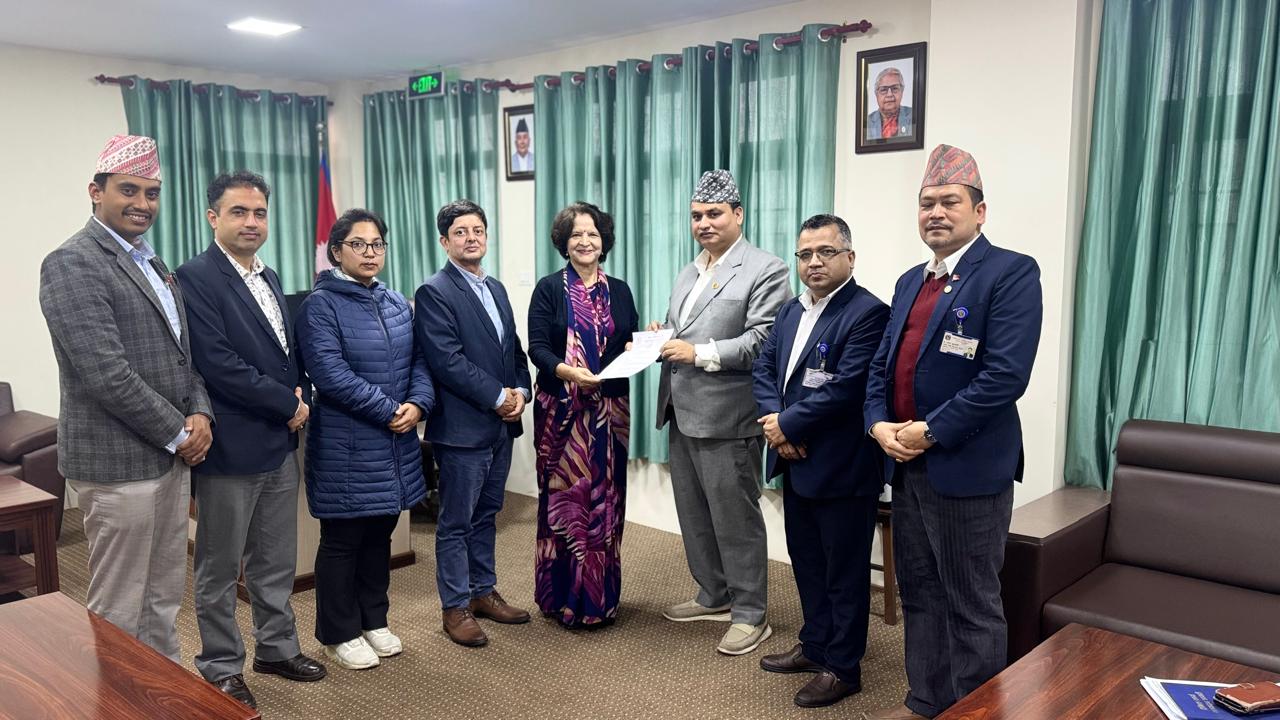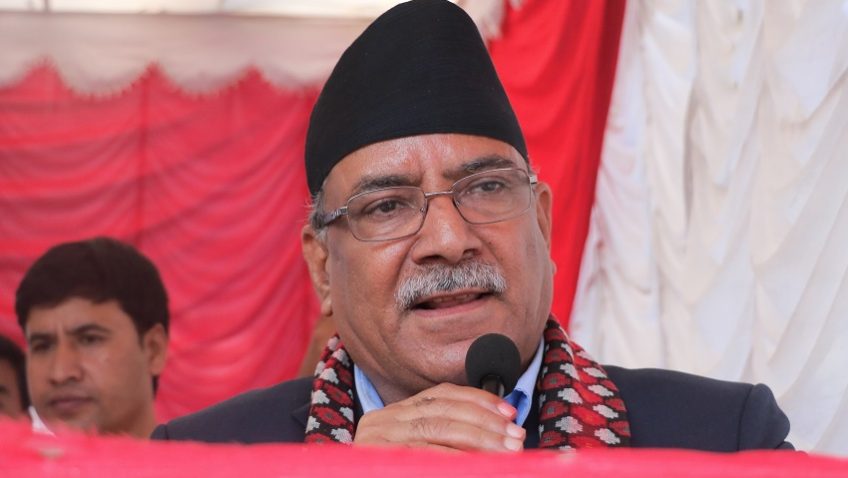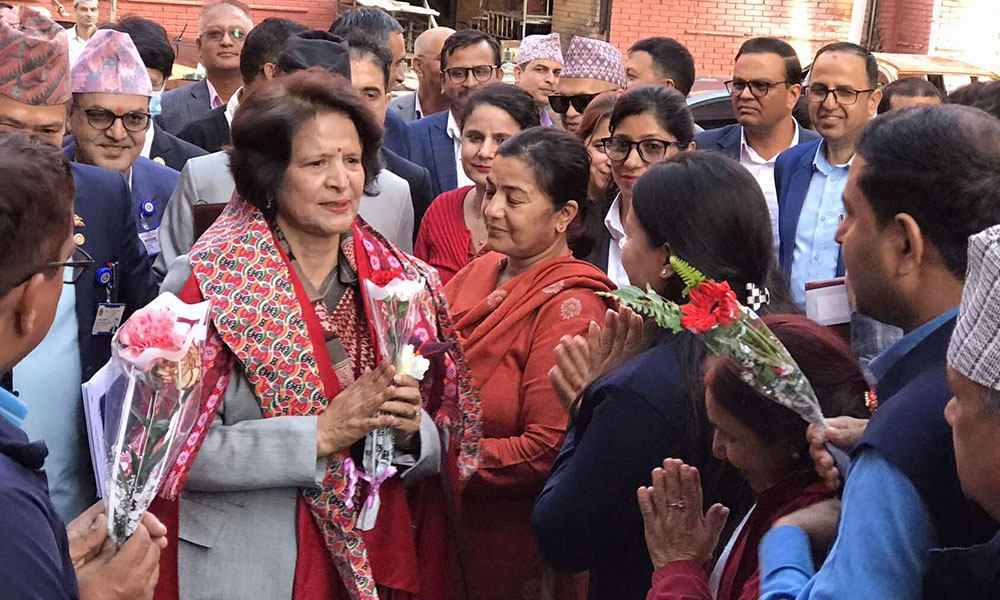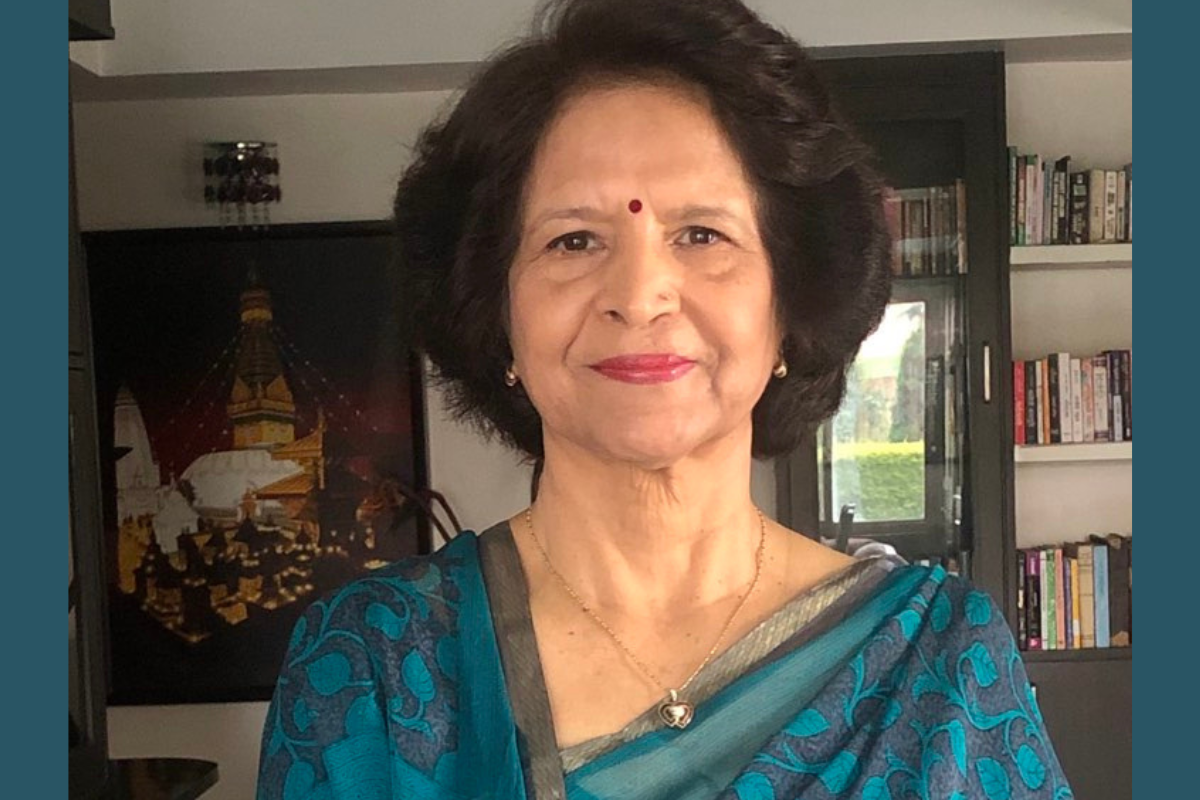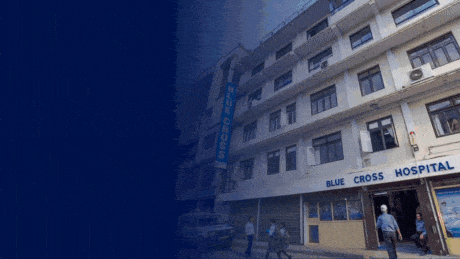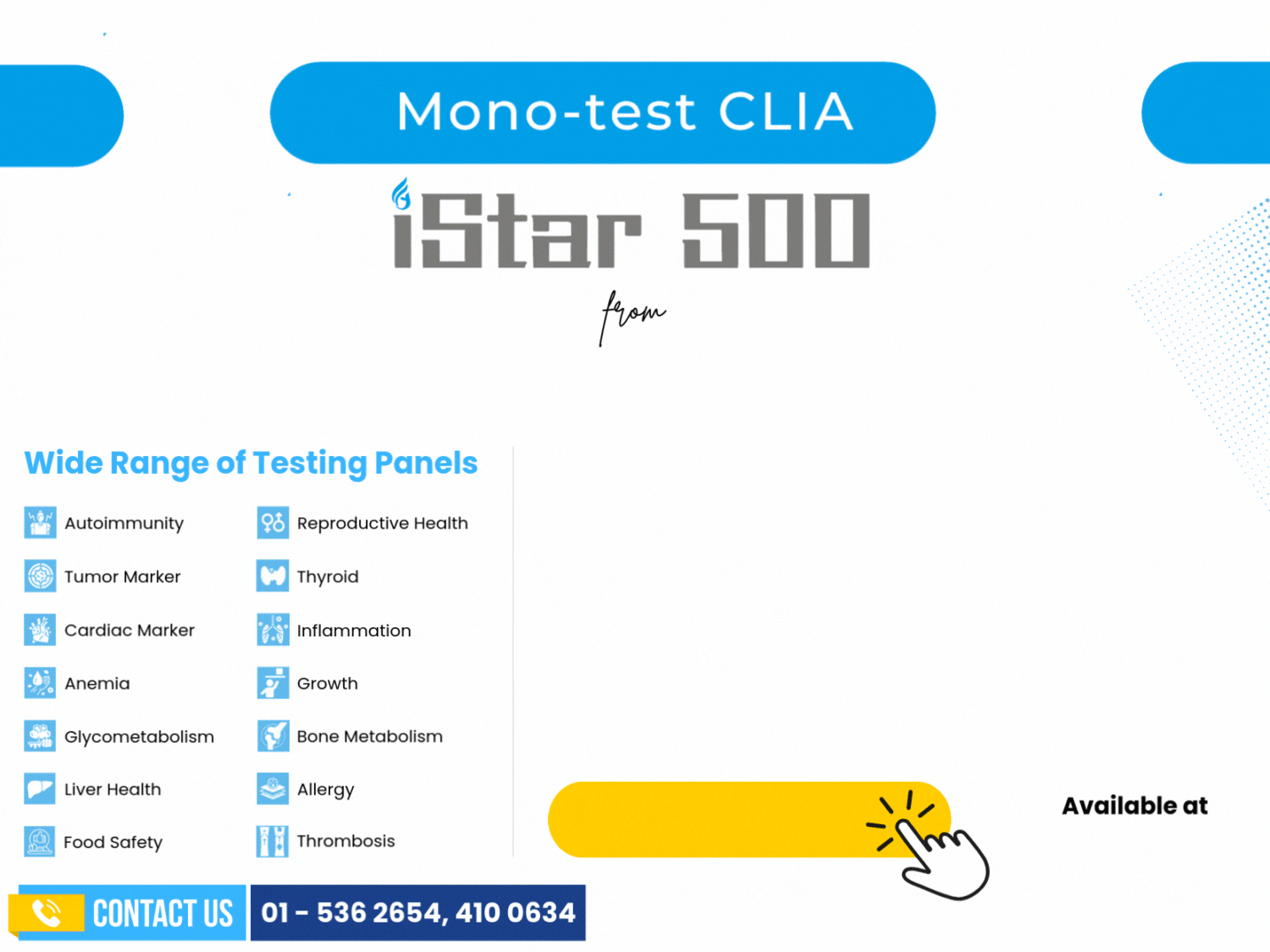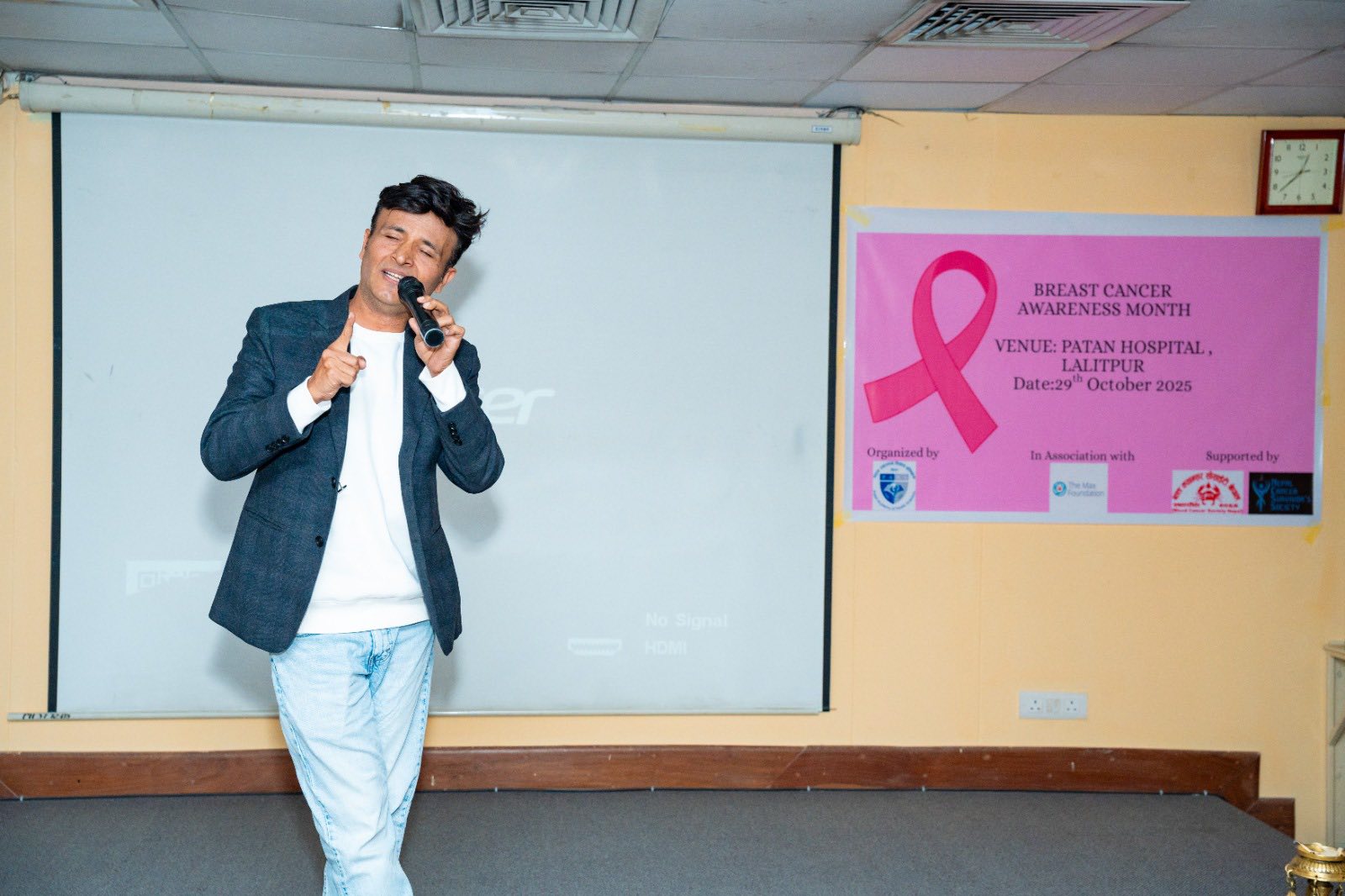
Kathmandu—”One life to live; who knows when cancer will strike… who else do I have but you, doctor…?”
The usually quiet auditorium of the Patan Academy of Health Sciences echoed with these heartfelt lyrics on Wednesday afternoon. The moment was unlike any other—soulful, still, and deeply emotional. Renowned singer Hemant Sharma took the stage, blending his iconic song “Mool Haun Bhane Rasaideu” with the message of breast cancer awareness, filling the hall with hope and compassion.
His voice carried not just melody but meaning. “My life depends on you now, doctor… If you have to make me cry, do it; but if you can make me smile, please do.”
For the audience—patients, doctors, and survivors—Sharma’s performance was a gentle reminder of resilience, courage, and the will to live.
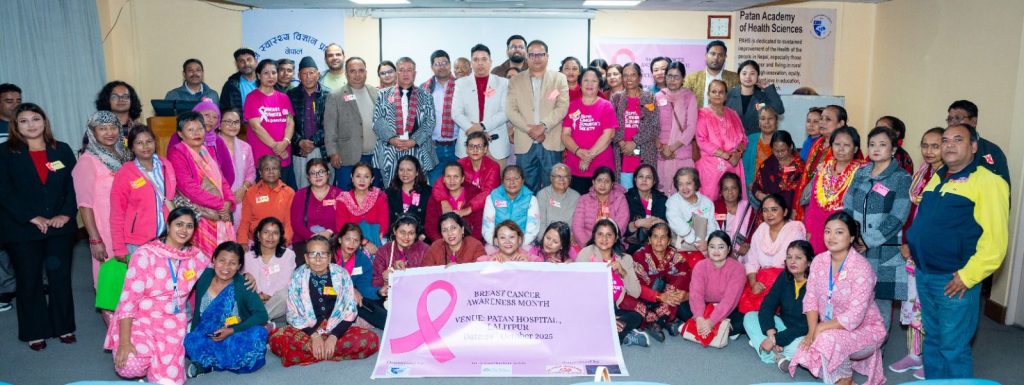
These days, the singer has been spending much of his time at hospitals. His wife has been undergoing treatment for breast cancer, and he has been closely connected to the medical community. While visiting the hospital, he met cancer specialist Dr. Arun Shahi, who asked him to sing at the Breast Cancer Awareness Program. Despite battling dengue himself, Sharma could not say no.
“My wife wanted to come too,” he shared softly. “She’s on her fourth round of chemotherapy, so she’s too weak. However, being in the hospital has made me realize how everyone’s pain feels like the biggest pain in the world. I’m here because I believe I must do my part to raise awareness.”
A Session Filled with Knowledge and Empathy
Wednesday’s program was more than just a musical moment—it was an interactive and informative gathering. Cancer specialists Dr. Arun Shahi and Dr. R.P. Baral addressed the audience, answering questions from both patients and survivors. They openly acknowledged that medicine alone cannot answer every concern—some answers come only from experience, empathy, and understanding.
To discuss the mental health challenges that follow a cancer diagnosis, psychiatrist Dr. Pawan Sharma was invited. He shared that research shows nearly 50% of breast cancer patients experience depression.
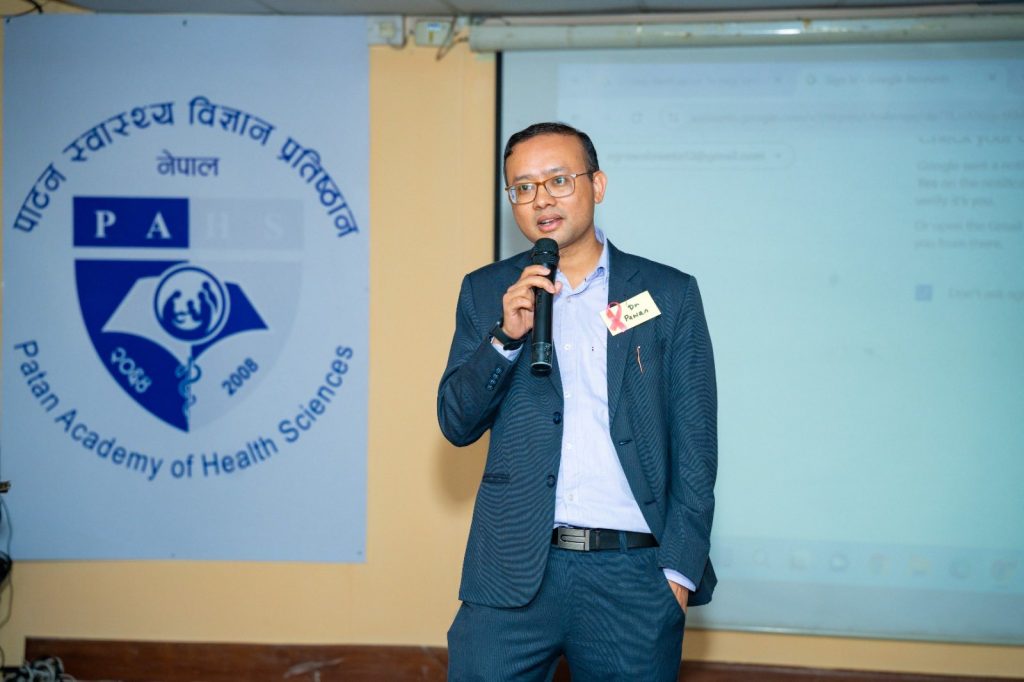
“Feeling fear is normal,” he said. “When an earthquake hits, your body automatically responds. The same happens when you are diagnosed with cancer. Don’t overthink what might happen—accept what is and face it with strength.”
Food, Lifestyle, and Living Well
One of the most common questions cancer patients ask is, “What should I eat or avoid?”
Nutritionist Yogita Sapkota gave a practical answer:
“Half your plate should be filled with vegetables,” she said. “Of the remaining half, one quarter should be grains and the other proteins like fish, meat, or legumes.”
She emphasized the importance of colorful, balanced meals and discouraged unnecessary supplements, advising people to instead maintain a disciplined lifestyle.
Meanwhile, Dr. Baral reminded participants that modern treatments have significantly improved survival rates. “People used to say, ‘Cancer has no answer,’ but today, we say, ‘Cancer has multiple answers.’”
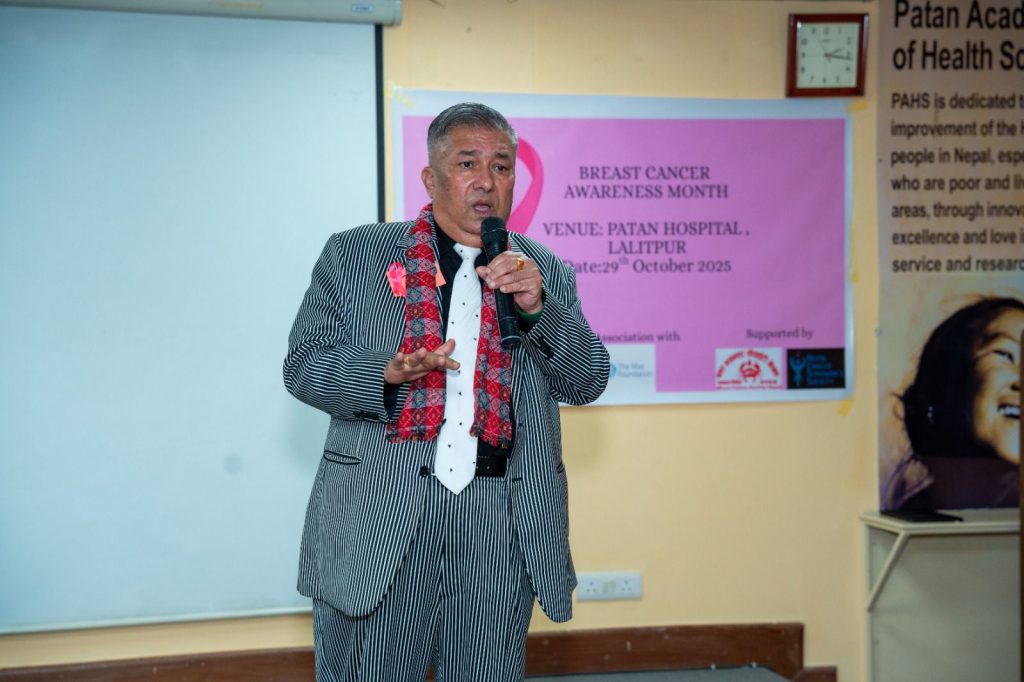
He also urged journalists to share stories of hope, not just tragedy. “Let’s highlight survivors—people like former President Dr. Ram Baran Yadav—to remind others that cancer is curable.”
Survivors as Warriors, Not Victims
Nepal Cancer Society President Pramita Khanal spoke about the importance of seeing cancer survivors not as victims, but as warriors.
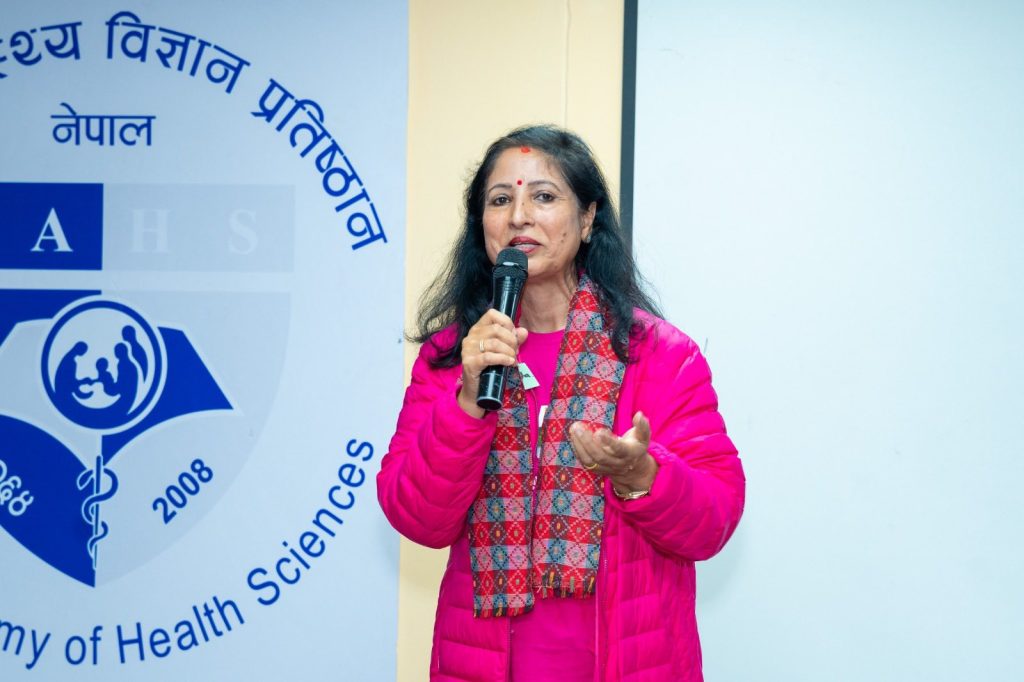
“Treatment is important,” she said, “but so is emotional support. Family and community play a vital role.” She explained how her organization provides both mental and practical support to patients—including personal visits and video calls to those in treatment.
Nepal Blood Cancer Society Treasurer Shobha Khatri, herself a two-time cancer survivor, shared her journey. She recalled how The Max Foundation supported her organization to bring cancer medicines to Nepal.
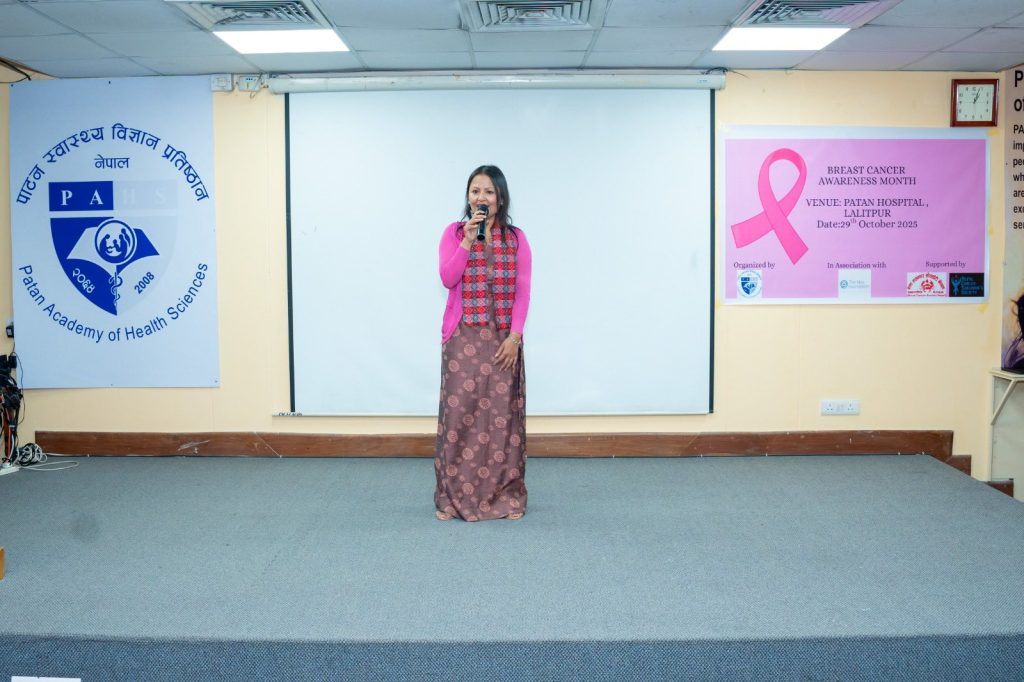
Representatives from The Max Foundation, Shweta Agarwal and Sabina Ghale, shared that the organization provides 15 types of free medicines for 14 different cancers through hospitals like Patan Hospital, BP Koirala Memorial Cancer Hospital (Bharatpur), and Sushil Koirala Prakhar Cancer Center (Banke).
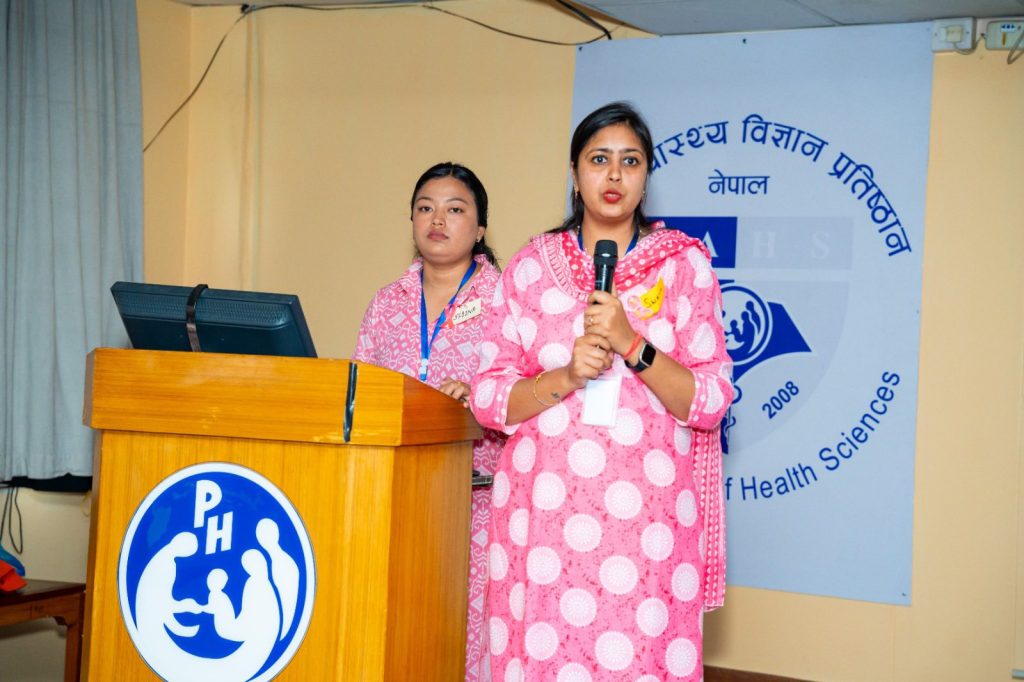
“Beyond medicines,” Ghale added, “we even help breast cancer patients with travel expenses to ensure no one’s treatment is interrupted due to geography or finances.”
“Patan Will Be a Center of Excellence for Cancer Care”
Dr. Buddhi Poudel, Vice-Chancellor of Patan Academy of Health Sciences, announced plans to make Patan Hospital a Center of Excellence for Cancer Treatment.
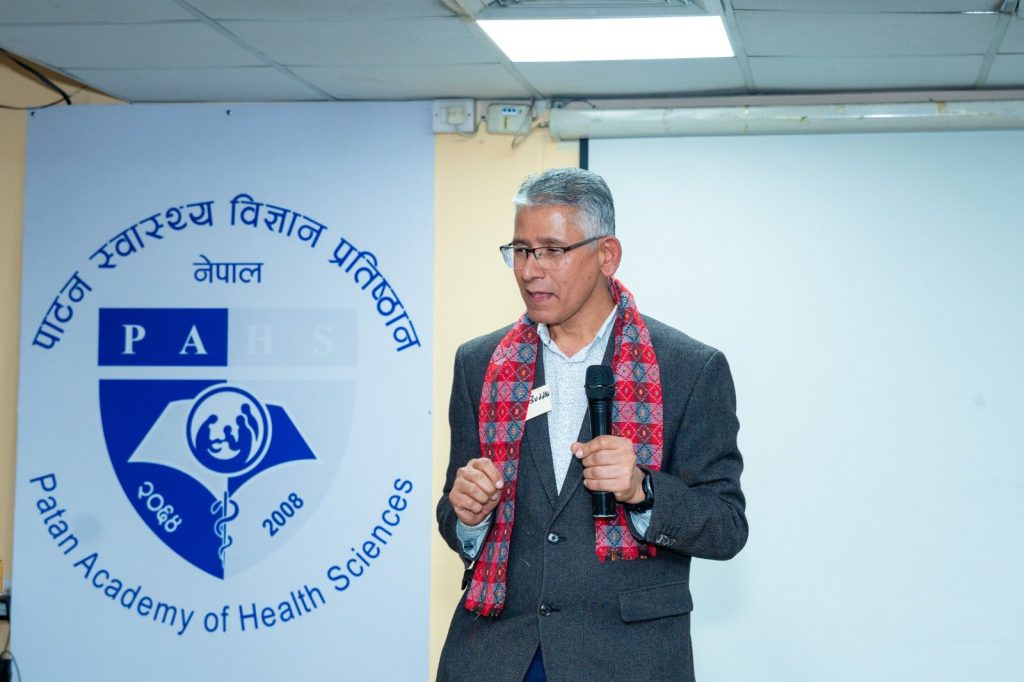
“We’re preparing to construct a modern building dedicated entirely to cancer care,” he said. “Our goal is to ensure that Nepalese patients receive world-class treatment right here at home.”
Despite limited space and manpower, Dr. Poudel praised Patan’s growing recognition for cancer care and noted that many cancer drugs are already available free of cost at the hospital.
Dr. Arun Shahi, who coordinated the event, said the program was designed to be diverse and interactive, bringing together perspectives from medical, psychological, nutritional, and survivor viewpoints—all with a shared mission: to build awareness and hope.
In that quiet hall at Patan, Hemant Sharma’s song lingered long after it ended—not just as music, but also as a message:
A reminder that even in pain, there is beauty; even in fear, there is hope.
swasthyaadmin
Published: October 30, 2025


